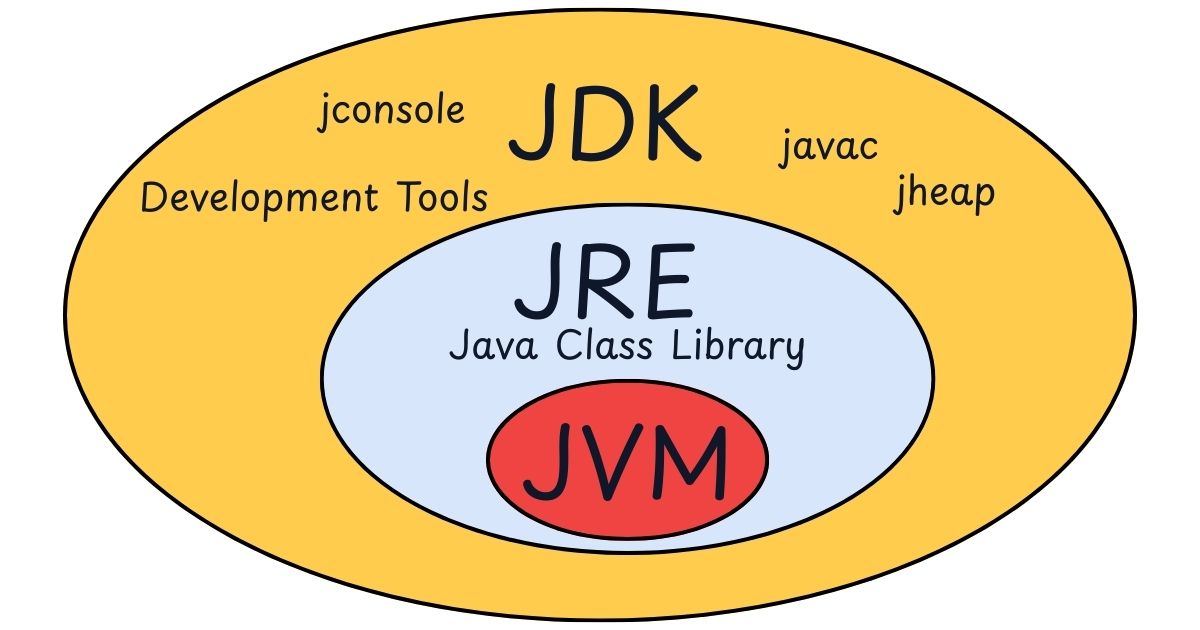Difference Between JDK, JRE, and JVM in Java

If you’re a Java developer or preparing for interviews, you’ve probably come across the terms JDK, JRE, and JVM. Many beginners find them confusing because they are closely related but serve different purposes.
In this post, we’ll break down the differences, explain how they work together.
1. JVM (Java Virtual Machine)
Definition: The JVM is the heart of Java. It is a virtual machine that executes Java bytecode and makes Java platform-independent ("write once, run anywhere").
Converts .class (bytecode) into machine code.
Handles memory management (Garbage Collection).
Provides security and exception handling.
Key Point: JVM is an abstract specification, not software itself. Each platform (Windows, Linux, macOS) has its own implementation of JVM.
2. JRE (Java Runtime Environment)
Definition: The JRE provides all the tools and libraries needed to run a Java program. It includes the JVM plus essential runtime libraries.
It does not include development tools like compilers (
javac).Used by end-users to run Java applications.
What JRE Contains:
JVM
Core Java libraries (e.g., java.lang, java.util)
Supporting files
Analogy: If JVM is an engine, JRE is the car — it includes the engine plus everything else needed to run.
3. JDK (Java Development Kit)
Definition: The JDK is a superset of JRE. It contains everything you need to develop, compile, and run Java applications.
Includes JRE (so you can run code).
Adds development tools like
javac(compiler),javadoc,debuggers, etc.
What JDK Contains:
JRE (JVM + Libraries)
Compiler (
javac)Tools for development (debuggers, profilers, etc.)
Analogy: If JRE is a car to drive, JDK is the garage + tools needed to build or repair the car.
How They Work Together
Think of it this way:
JDK = Development kit (everything you need to create and run code).
JRE = Runtime (everything you need to just run code).
JVM = Engine (actually runs the code).
Conclusion
Understanding the difference between JDK, JRE, and JVM is crucial for every Java developer.
Use JDK when you’re developing applications.
Use JRE if you only need to run applications.
And remember, everything eventually runs inside the JVM.